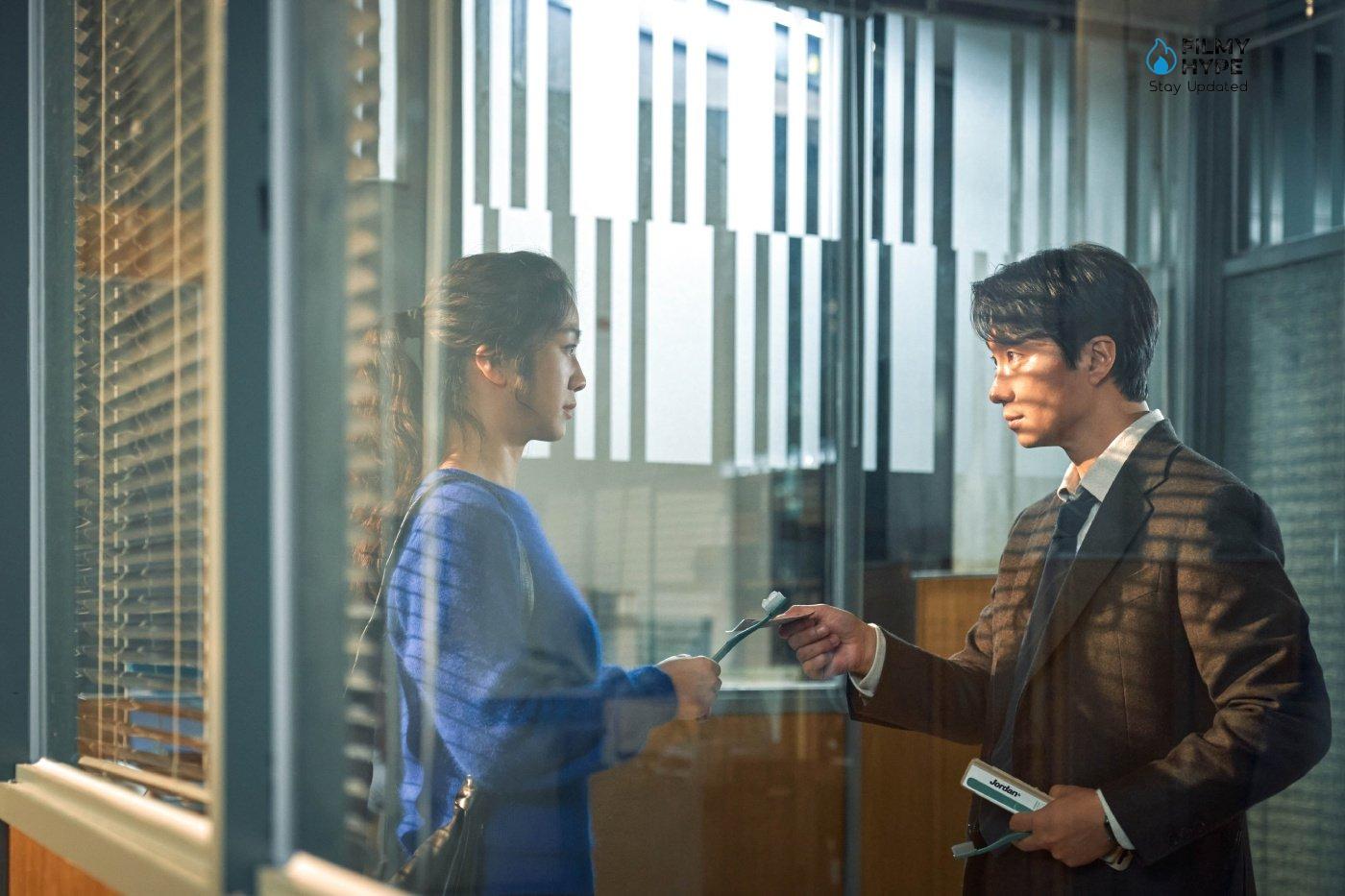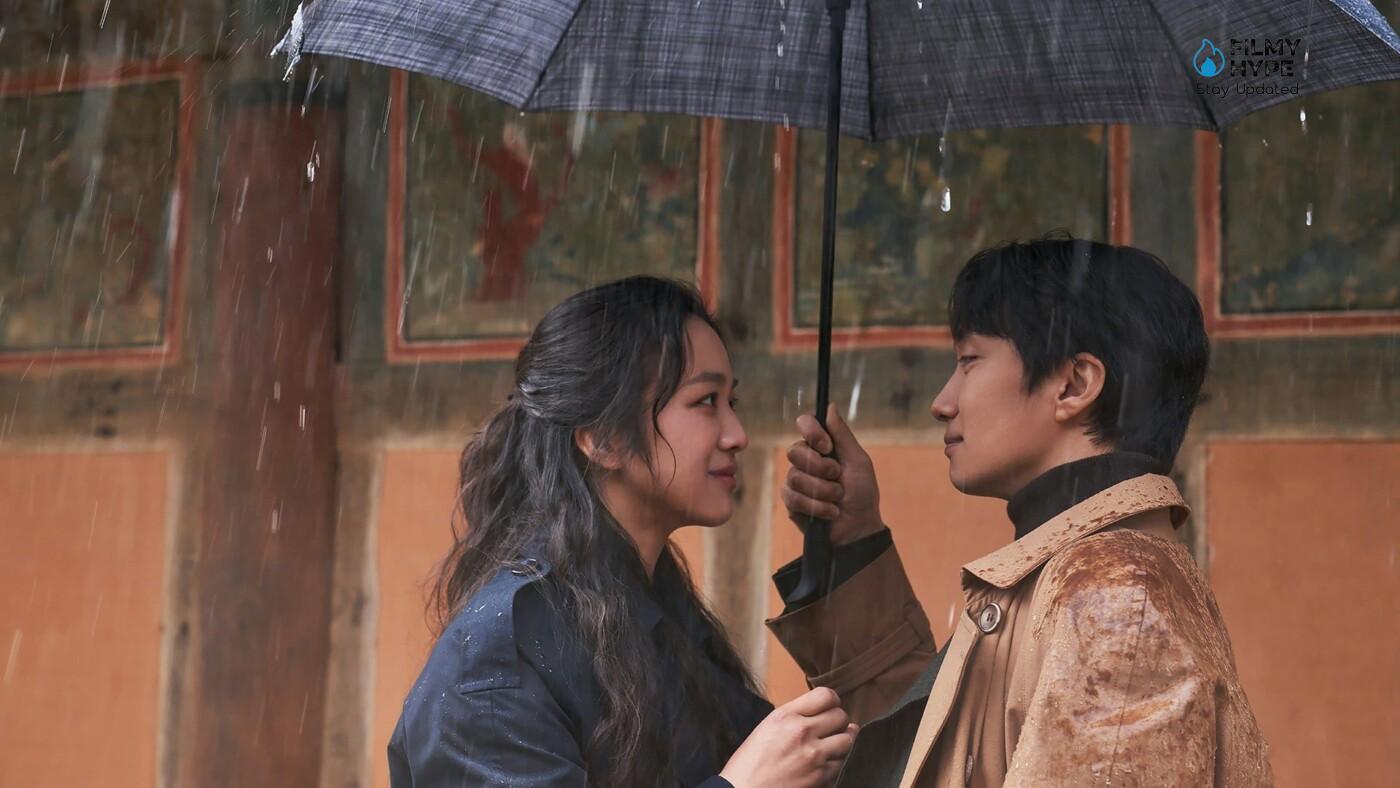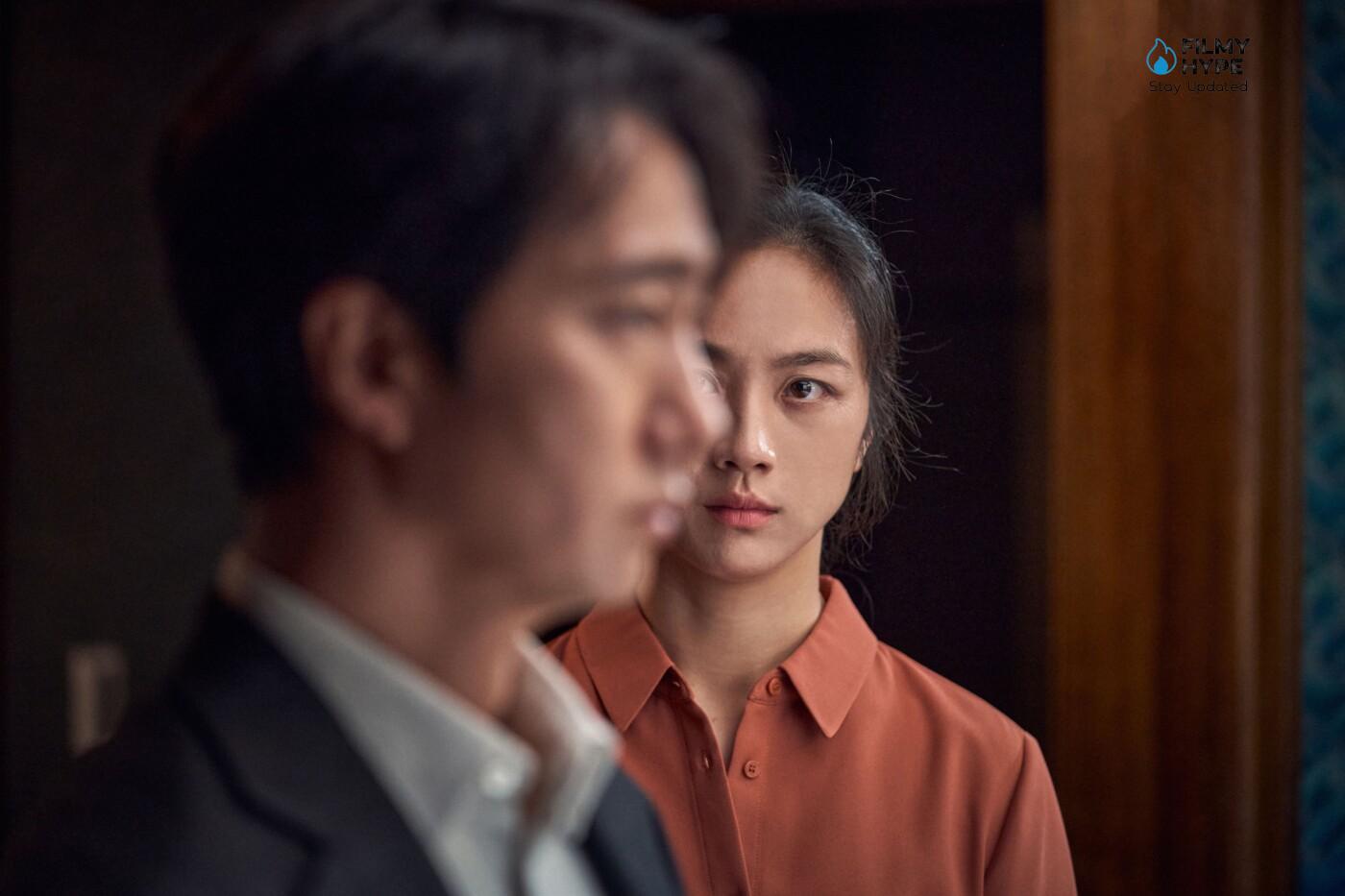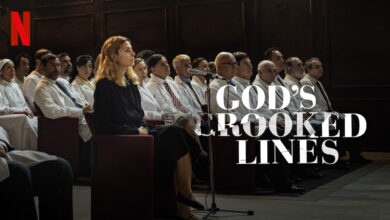Decision to Leave: Why to Watch the Importance of Park Chan-Wook’s Psychological Thriller
Park Chan-wook's new film Decision to Leave explores various important aspects of the psychological thriller and this time it does it through love.
Decision to Leave the latest film by acclaimed South Korean director Park Chan-Wook will arrive in Italian cinemas on February 2, 2023. It is a new gem of the psychological thriller genre that is set among the highest representations of the genre. For celebrated South Korean director Park Chan-wook, the process of falling in love resembles a criminal investigation: both are an attempt to understand the motivations behind another person’s actions. Park Chan-wook’s twisty crime drama Decision to Leave is one of the best films of 2023 (yes, hands down) and it’s one of the most sophisticated movies he’s ever made. He manages to distinguish himself in a career that has already produced a string of fantastic and memorable films, from the political drama Joint Security Area to the revenge thriller Oldboy, to the incredible period film The Handmaiden.
But Decision to Leave is also an extraordinarily subtle film. Analyzing the cinema, it was immediately clear that he had embodied a layered symbolism in the tiny details of the film, the kind of thing that is difficult to grasp, especially on first viewing – and for non-Korean speakers, perhaps impossible to comprehend. We try to reveal some of those little details of the character and how he intended to shape them in the story. In Decision to Leave, sleepless, married detective Hae-jun (Park Hae-il, from Bong Joon-ho’s Memories of Murder) investigates Chinese expatriate Seo-rae (Tang Wei, from Lust, Caution) after the death of the husband in what appears to be a hiking accident. Hae-jun is a cautious, methodical, melancholy man who is endlessly obsessed over his lui cold cases and can’t sleep at night because he thinks too much about all the mysteries he never solved.

Seo-rae on the other hand is a quiet woman who sees through her mask, immediately picking up on other nuances. Hae-jun’s relationship with his wife seems solid and lovable enough, but despite this, he quickly starts falling for Seo-rae. For her part, initially, it doesn’t seem like she’s trying to replace her deceased husband, and over the course of the film, it’s unclear whether she’s manipulating the detective, getting himself exonerated, or if he’s eventually embracing the woman. Just like a detective needs proof to solve a case, when you’re in love, you’re also constantly looking for evidence that this person loves you or doesn’t love you. For both the detective and the lover, the important thing is to get rid of any prejudice.
Decision to Leave: Here Is The Trailer
Why See Decision to Leave
His latest film effort, the thriller Decision to Leave, follows Detective Hae-jun (Park Hae-il) as he investigates a man’s seemingly accidental death. The wife of the deceased, Seo-rae (Tang Wei), now a widow who has come from China to live in South Korea, collaborates in his investigation. But soon their interactions will go beyond the professional and their mutual attraction will mix right and wrong. Known for the dazzling brutality of his seminal revenge thriller Old Boy and the eroticism of his lush The Handmaiden, Park argues that, whatever the genre, all of his films are love stories. With Decision to Leave he aimed to imply it, but not to express it overtly.
He wanted to make a film that told a love story without using the words ‘I love you’”. The mystery genre, Park’s chosen channel this time, scratches an existential itch in the human condition. Because our lives are filled with puzzles – the meaning of our birth, what comes after we die, why the people around us behave the way they do – we long for “certainty”. In the mystery genre, authors tend to answer the question. Not too personal questions, but to the central ones of the story. We are always hungry for this type of thriller because our questions never find a complete and unambiguous answer.
However, the Decision to Leave is less a whodunit than a whydunit: although we learn the identity of the author, we are unaware of that person’s reasoning. And that’s just one of the ways Park subverts or manipulates the themes of the genre. Tired of how violent detective characters have become in popular culture, Park conceived of Hae-jun as an opportunity to portray an official whose sole mission is to serve the people with honor. If you look at classic Hollywood movies, the detective characters in those movies are very different from those in contemporary media. There wasn’t much violence in those characters. Not just in Hollywood movies, but in detective movies all over the world.

But the film doesn’t focus solely on the professional duties of its male lead. After all, it’s also a love story. For Park, Hae-jun was the key to creating a unified story that linked the investigative process and the process of falling in love. There are no two different tracks where one is to investigate the suspect and the other is to meet the woman, it’s a singular track where both stories are told simultaneously. He doesn’t meet the woman in his spare time. Passion and detective work are also intertwined in the subplot that Park presents as an homage to the works of Martin Beck and Ed McBain. When Hae-jun tries to defuse a difficult situation with a thug she’s been after, her therapeutic small talk to comfort the thug also serves as a representation of her feelings towards Seo-rae.
And the further Hae-jun enters Seo-rae’s world, the more clues make us suspect that she may die just like her two husbands. Despite the challenge of creating a mystery set in our digital present, where cellphones and CCTV cameras have computerized much detective work, Park ultimately decided against making the film into a period piece. He certainly would have preferred to have a good quality card with someone writing in nice ink pen handwriting to each other. But if the story had been told this way, it wouldn’t have reflected our modern society and would have come across as rather forced.
Decision to Leave: Sex and Violence
One thing that surprised some Decision to Leave viewers is how much this crime story focuses on romance. There has been debate as to which genre the label Decision to Leave falls under – whether it is more of a crime drama, a thriller, a murder mystery, or just a romantic drama with a few murders. For Park, however, there isn’t much debate and that’s one of the reasons he reduced the elements of nudity and violence in this film. According to him in most of his previous works there were and are romantic undertones, but unfortunately people weren’t able to fully understand it perhaps because the nudity and violence were explicit, slammed in the face to be everything that is remembered when the spectators leave the cinema.
That’s why, even when he makes a romantic film, people will be focused on the erotic rather than the romantic that should have been conveyed. “I wanted to break away from those misjudgments, which is why I tried to get rid of those elements in this film.”
There’s one important thing about Seo-rae that may not be suitable for non-Korean speakers: throughout the film, she tends to apologize for her lack of command of the language. Sometimes she even speaks Chinese on the phone, to then have herself translated. At the same time though, the English subtitles mark her as formal and erudite, without anything suggesting that she speaks awkwardly. This localization problem is defined by Park as an error that does not scale well with translation.

Seo-rae’s Korean pronunciation is imperfect, but it’s good enough for a Korean person to be able to understand what he’s saying. When you send a message, you have better grammar and spelling than when you’re spoken to him. In contrast, her second husband has terrible spelling and grammar. Also, when she speaks, all of her sentences are almost perfect.
He looks even more elegant than a modern Korean person because he learned his Korean through period dramas. He is like a person trying to learn English by writing Shakespeare. Park also pointed out that Korean speakers will probably think that Seo-rae sounds “a bit strange”: this is a process implemented by Park that over time leads to a rather peculiar result. The more you listen to her, the more you realize that her Korean is more accurate than it sounds, more elegant. This mechanism leads the viewer to feel a little sorry or even embarrassed, for having thought of his approach to language as awkward.
Decision to Leave: Love and Violence
There are also instances in the film where Seo-rae will use a particular word, but in a strange context. So when someone hears you, you may even think it’s a mistake at first. The more that is heard though, the more they may realize that there is a new meaning to that word. This whole process of thought evolution might be hard to get through subtitles, but I’m sure all of you have had a similar experience to listening to a foreigner trying to speak English, not quite sounding right. Decision to Leave was a hit in Korea, topping the box office when released in early 2022, and ranked among the top 10 Korean box office hits of all time.
But Park says the published script is also a bestseller, which has given more people a chance to study how Seo-rae writes and speaks. His classic use of Korean has become a new trend. Instead, the director has embraced modernity, devising a new approach to on-screen text messaging – a shot of the device with the text in the foreground and the face of the person on the other end of the conversation in the background – which has no exact correspondent in real life. When the male character is typing, his eyes aren’t actually on the phone but are on the woman. That’s why, despite the use of modern technology, these scenes still feel more romantic than writing letters in a Victorian-era setting.
The interplay of two voices is woven into Park’s creative process: since 2005’s Lady Vengeance, he has collaborated with Jung Seo-Kyoung on all of his screenplays. Recruiting her, he says, is one of the best decisions he’s made in his career. Because they sit down to piece together every single letter on the script, Park sees their contributions to the narrative as nearly indistinguishable. She wanted some change in her mostly male-centric works, which is why she needed a female co-writer. Femininity is hard to explain, but it can be felt in the works since they started working together as a team.
Although the pair have traditionally avoided writing with a specific casting in mind, as the idea of this seductive murder mystery was brewing in their minds, Park asked Jung to imagine actor Park Hae-il as an example of the type of man who is Detective Hae-jun, even though they had no real intention of giving him the part. In Hollywood-friendly terms, Park describes Park Hae-il as “the James Stewart of Korea.” Park and Jung also envisioned the character of the widow as a Chinese woman just to be able to play her by Tang, whom they both had loved since seeing her in Ang Lee‘s Lust, Caution. Luckily, both artists signed on to the project early in development
For the first time in his directing career, he cast his two lead actors before starting work on the screenplay. Seo-rae’s background draws on the complex history between China and Korea. It also gave Park another opportunity to experience modern technology in an old-fashioned romance: Park makes use of this specific challenge in communicating through translation apps. Even though Seo-rae’s Korean is outstanding, whenever she has too much to say or wants to say it quickly, she says it in Chinese for a translation app to relay her message to Hae-jun. This frustrates him as the tone and emotion of his words are lost in the flat digital voice.
Both Hae-jun and the audience have to think back to moments before and remember the tone and face he had when he spoke. They have to pull those images out of their head and combine them with the content of what the app is saying. He believes that this is a new way of watching movies that have never been tried before in other films. While Decision to Leave has traveled the world since it premiered in May at the Cannes Film Festival, where Park won the Best Director award, the seasoned South Korean maestro has come across writing that compares its sensual mystery to the work of Alfred Hitchcock.
Vertigo is the film that made him want to be a director. As someone who didn’t go to film school, Hitchcock was in film school him. That influence exists, but he didn’t think of Vertigo when he wrote Decision to Leave. To reinvent the trappings of cinematic traditions from which he is borrowing rather than dispensing with them altogether, Park feels he has largely succeeded, especially as he concludes his characters’ intense and dangerous romances.





